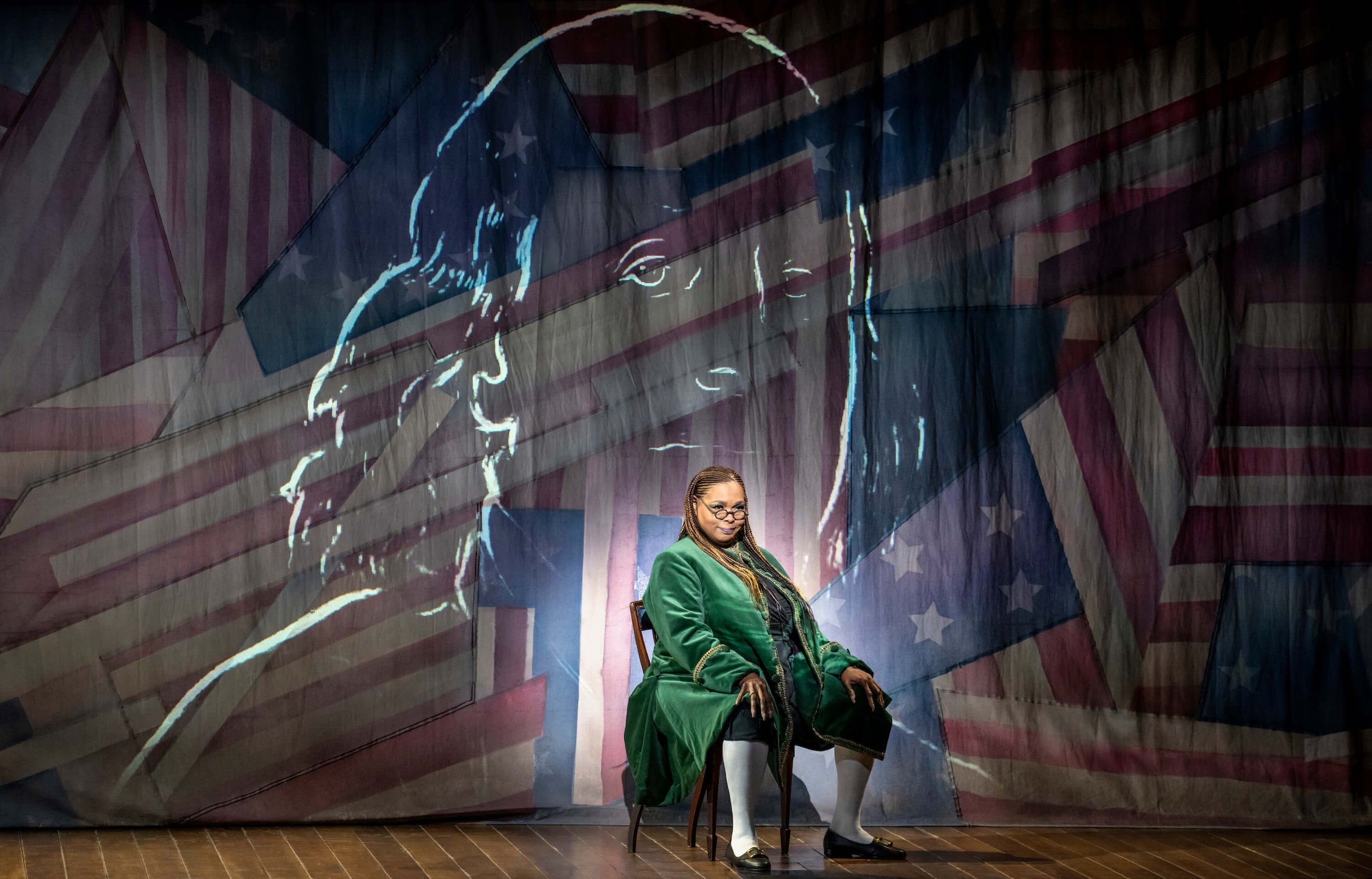Review: 1776 Rewrites History, 250 Years in the Making
“We hold these truths to be self-evident, that all men are created equal, that they are endowed by their Creator with certain unalienable Rights, that among these are Life, Liberty and the pursuit of Happiness”
- The Declaration of Independence, July 4, 1776
Most of us grew up hearing the infamous opening of the Declaration of Independence in US history classes in school. We were taught about the Founding Fathers at the Second Continental Congress and the larger-than-life signature of John Hancock at the bottom of the page. We are taught that this moment was a beginning. Now, nearly 250 years later, we can all agree. It is only the beginning.
Directed by Jeffrey L. Page and Diane Paulus, this 21st century revival of the original 1969 production of 1776 tells the infamous story of the Founding Fathers and the signing of the Declaration of Independence. Only this time, instead of white men doing the signing, the production is composed entirely of artists representing several racial, ethnic, and gender backgrounds, including those who identify as female, trans, nonbinary, and gender nonconforming. Much like Hamilton that came before it, this revised version of 1776 will still feature artists playing the men we have spent centuries studying, only now, they represent a more diverse, accurate representation of what our country is today. Page and Paulus note that this change grants the opportunity to “find other faces, other voices, other perspectives on our American history.”
While this theme is carried through the production, it is perhaps most notable during a brief exchange with Robert Hemings (uncredited in this production), the enslaved person who waited on Thomas Jefferson (Nancy Anderson) as he wrote the Declaration of Independence. As the infamous “all men are created equal” words are spoken offstage, the look exchanged between the two performers hung in the air like electricity, speaking volumes without saying a word.
Gisela Adisa as John Adams in the national tour of 1776
Amongst the cast of talented performers as our nation’s delegates, Gisela Adisa shines as fervent leader John Adams. While described as “obnoxious and disliked” from the get go by the other members of Congress (as exemplified in the opening number “Sit Down, John”), Adisa portrays Adams as a passionate and true believer of the cause. Coupled with that musical theater charm and Adisa’s marital back-and-forth with Abigail Adams (Tiesha Thomas), you’ll find yourself rooting for the endearing Adams and all that he hopes to accomplish.
Benjamin Franklin may be one of the most well known Founding Fathers, thanks to his contributions in science and politics. Fortunately, performer Liz Mikel fills Franklin’s famous shoes with ease. Portraying Franklin as a sort of snarky, lovable grandfather figure, Mikel radiates the authority we have come to expect upon hearing the name Benjamin Franklin without compromising her own comedic timing and theatrical presence.
Liz Mikel as Benjamin Franklin in the national tour of 1776
Mikel’s lovable nature is a sharp contrast to the odious Edward Rutledge of South Carolina, played by Kassandra Haddock. From the beginning, this North Carolina audience despised Mr. Rutledge as Haddock made jab after jab at the expense of Rutledge’s neighbors to the north. With a voice that dripped of honey sweet contempt, Haddock stole the show with her rendition of “Molasses to Rum.” This intense, visceral number highlights the utter hypocrisy that was interwoven in the fabric of our nation as the members of Congress debate the issue of slavery. As modern day viewers, we (hopefully) are disgusted watching this character tout this concept we have since learned to condemn. As performers of color are singled out on the stage to highlight the idea of being “less than” in the eyes of the other Congressional members, we are forced to watch an unfortunate reality unfold. It is not often that the despicable characters in musicals don’t face some kind of consequences by the time the curtain closes, and it takes impeccable talent to leave audience members seething in their seats. Ms. Haddock, you did a wonderful job making us hate you.
Brooke Simpson is another standout in the role of the courier. Although her time on stage is brief, she makes the most of it with her number “Momma, Look Sharp.” Full of aching loss and pain, her powerful belt is full of power and grace as it echoes throughout the theater, followed by a moment of silence before earning the biggest applause of the night.
(L-R) Tiffani Barbour as Andrew McNair, Liz Mikel as Benjamin Franklin, Brooke Simpson as the courier, and the cast of the national tour of 1776
The technical elements of this production are fairly simple but undeniably effective. Projections on a screen (projection designer David Bengali) tally the yays and nays in the debates held by Congress alongside a simple setup of tables and chairs arranged for debates and conversation amongst the members. Costume designer Emilio Sosa has also created elegant masterpieces, dressing the performers in a seamless blend of modern and colonial pieces (to include brightly colored, intricately made colonial jackets and buckle shoes) to personify this blending of old and new.
DPAC Content Advisory: “This production contains stylized representations of racialized violence, particularly related to enslavement. Additionally, this production contains sexually suggestive themes, occasional strong language, haze, a brief strobe effect and flashing images, a non-firing replica firearm and a gunshot sound effect.” Not recommended for children under 12 years of age. Parental discretion is advised. Children under the age of six will not be permitted in the theater for this performance.
1776 will run at the Durham Performing Arts Center through Sunday, June 4, 2023. Tickets can be purchased here.
All photo credit to Joan Marcus.





